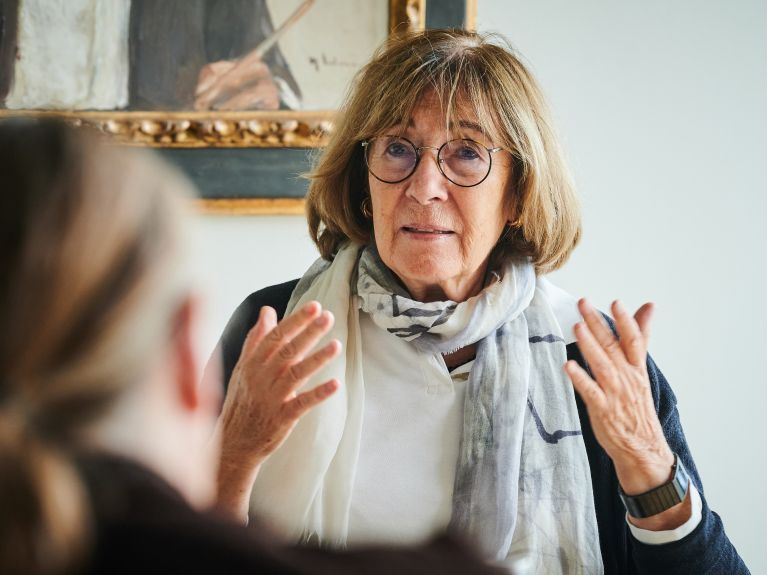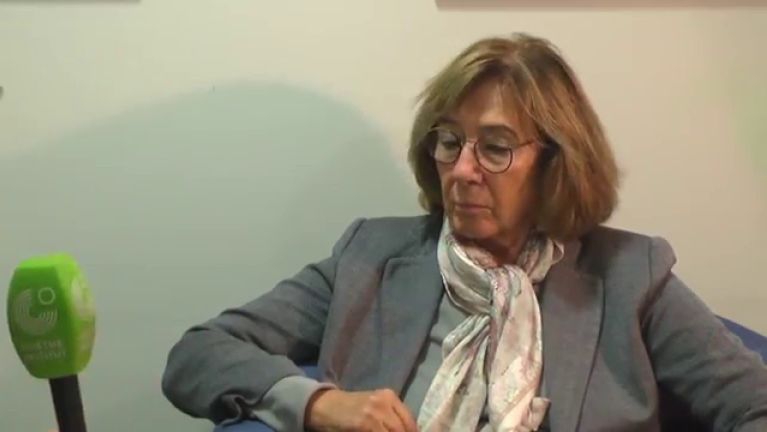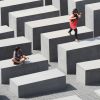Together for artistic freedom
Following the initiative of the Berlin Academy of the Arts, cultural academies across Europe have come together to defend their Independence.

A sparrow lying on its back and stretching its legs upwards because it fears that sky will fall: this was the image chosen by the Austrian writer Robert Menasse in his speech on the establishment of a European Alliance of Academies. A passing cat mockingly asks the bird whether it thinks it can hold up the sky like this. “No”, says the bird, “but I do what I can”. This image fits the situation of the academies exactly, thinks Jeanine Meerapfel, President of the Berlin Academy of the Arts (AdK). She initiated the merger of the European academies.
Ms Meerapfel, with the European Alliance of Academies you want to “defend the freedom of art and science”. What are you concerned about?
We see a resurgence of nationalism and xenophobic ideologies in Europe – and this only 76 years after the catastrophe of the Second World War. It’s our view that renationalization is not a way out of European crises, but rather their cause. We also see new efforts to limit the independence of art and culture. We want to take a position on these developments. More than 60 academies from all over Europe have joined us.
We have a wonderful dream to affirm in Europe.
Was it a long process to find so many supporters?
Not really. Many asked: “Why wasn’t there such an alliance already?” So far, the coming together of the academies has been rather random and sporadic. But we have to work together systematically because here we have a wonderful dream to affirm in Europe. That means we don’t look only at our own region.
The alliance is based on a “Berliner Manifesto”, which is captioned "Open Continent". So, open inwards and outwards?
Yes. We want to promote transnational cultural exchange within Europe and work to ensure that Article 13 of the EU Charter of Fundamental Rights – the right to freedom of art and science – is protected and defended. But we also see the problems arising outside Europe and don’t shut our eyes to them. We must show solidarity within Europe and around the world, especially in times of the pandemic.
You once said your own biography explains why you can think of Europe only as an open continent.
I was born in Argentina as a child of Jewish emigrants. I later studied and taught film in Germany. I’ve worked with people from all over the world time and time again. It’s clear to me that politics should never be designed in such a way that we forget others. Also not those who are knocking on Europe’s borders. We can’t wall ourselves off from the rest of the world.
Dieses YouTube-Video kann in einem neuen Tab abgespielt werden
YouTube öffnenThird party content
We use YouTube to embed content that may collect data about your activity. Please review the details and accept the service to see this content.
Open consent formThe Berlin Manifesto was signed on 9 October 2020, the anniversary of the attack on the synagogue in Halle – a deliberately chosen date?
Yes. We must not forget that we are part of the history of Europe, including the dark part, and that we have a responsibility to remember. If we don’t, disasters will repeat themselves. In the manifesto, we made clear that the Berlin Academy is aware of Germany’s responsibility. That was an important signal for our colleagues in many European countries.
The manifesto is a symbolic drawing closer together. How do you translate this into concrete action?
We have set up seven working groups corresponding to the interests of the participating academies. They will now formulate what we have to do. What influence can the Alliance have on society? How can we reach the younger generation? How can we protect the academies from policies that restrict autonomy? So networking at the European level is taking place. I’m convinced that only through this solidarity can we make a difference.
We want to create support as soon as our artistic freedom is questioned.
You have also spoken out on specific political situations – for example, in early 2021 with a declaration of solidarity with persecuted students and teachers at the state art academy in Belarus.
Yes, because solidarity with each other is at the core of our actions. It’s about creating support between the academies as soon as our independence and artistic freedom is questioned.


